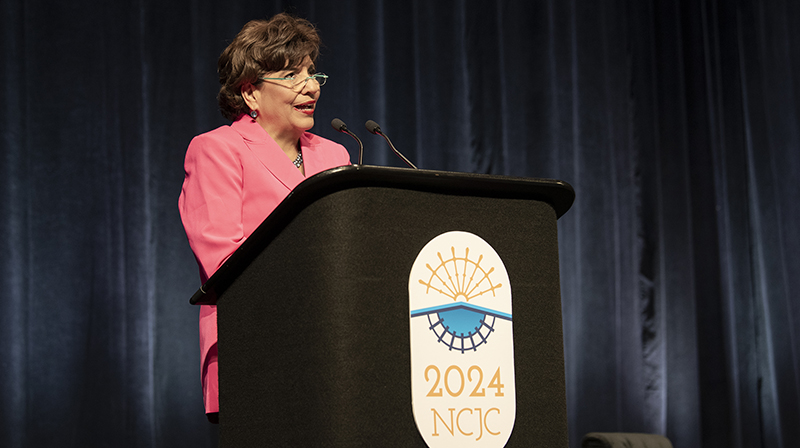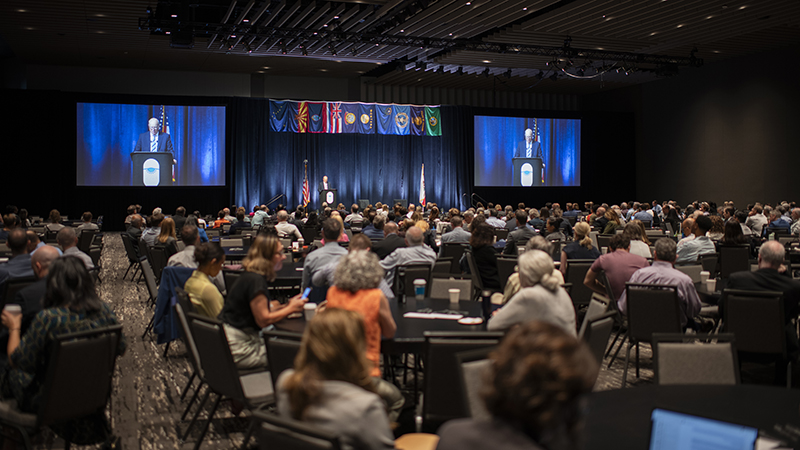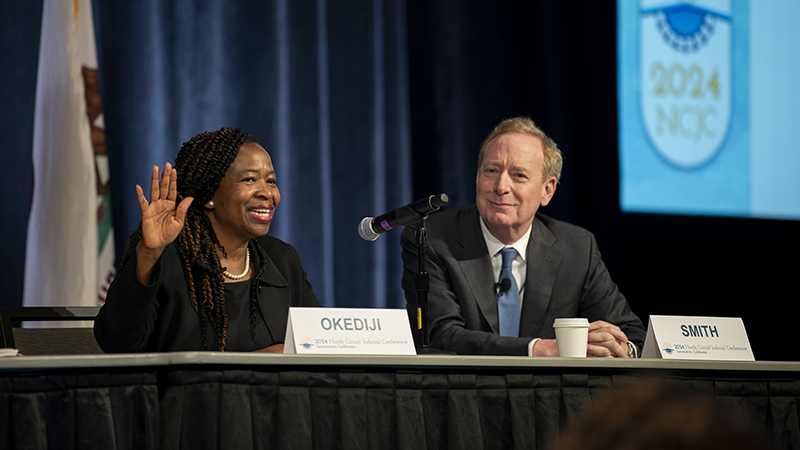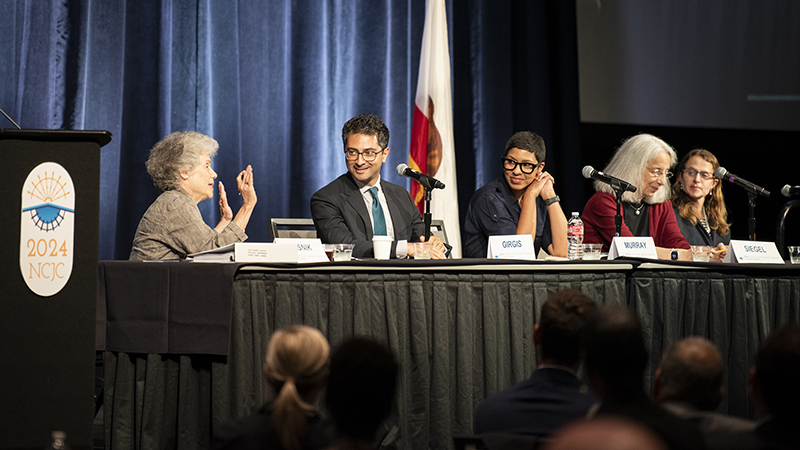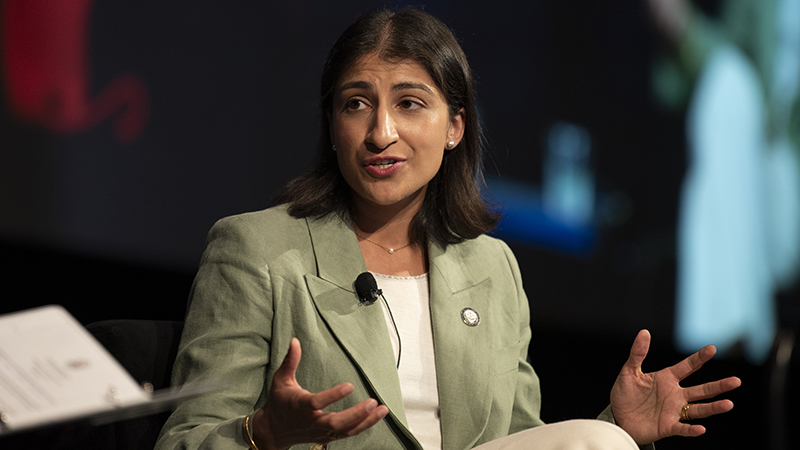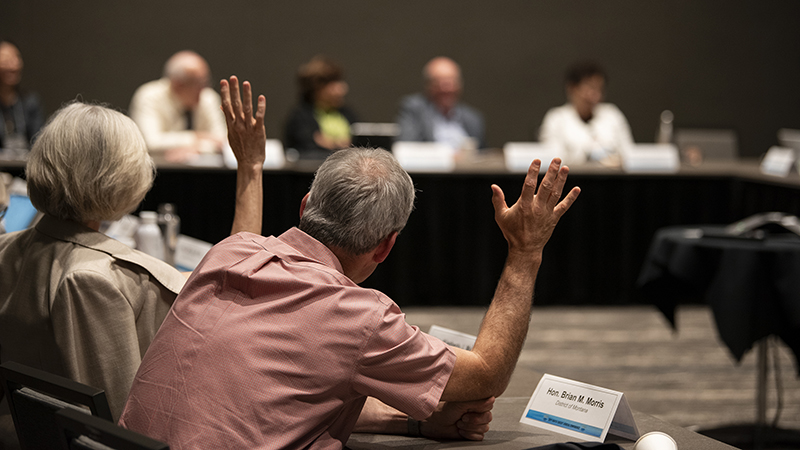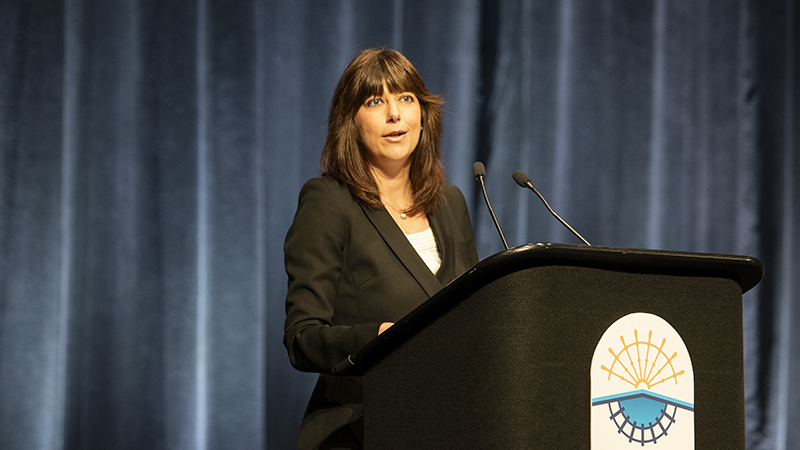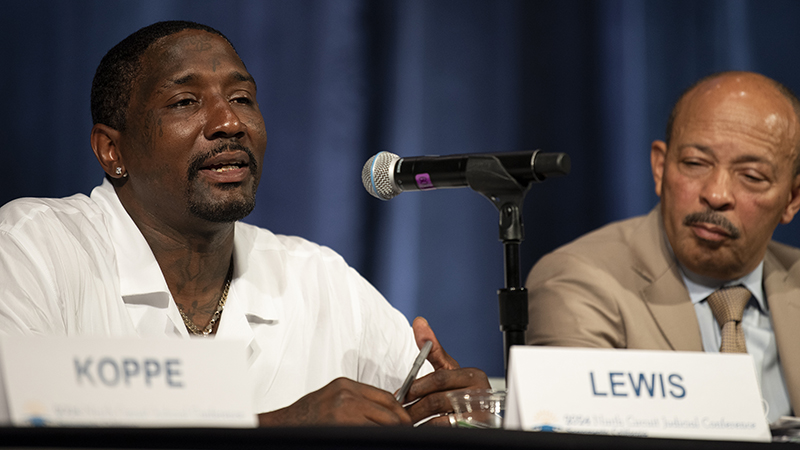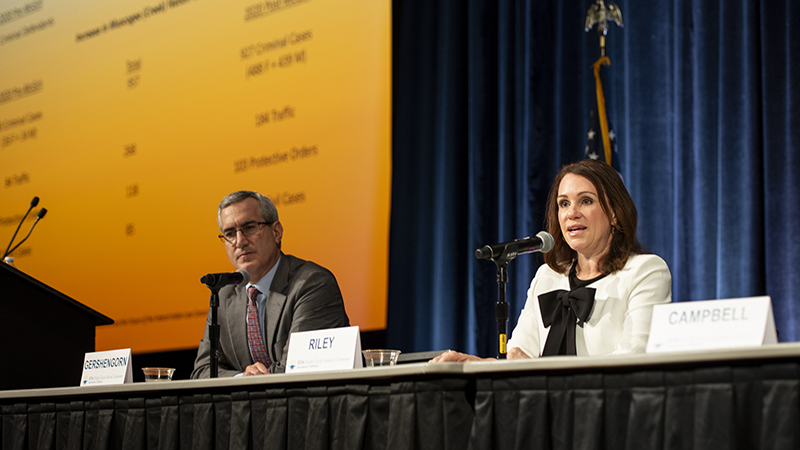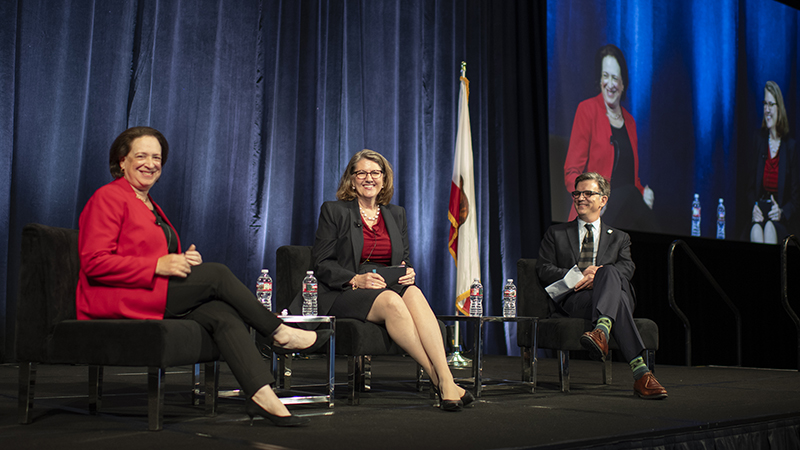
|
Ninth Circuit Judicial Conference Brings Legal Luminaries and Topical, Robust Discussions to SacramentoNovember 15, 2024
The 2024 Ninth Circuit Judicial Conference, “Navigating Legal Frontiers: Inspiring Ideas and Innovation,” held July 22-25 in Sacramento, California, was an inspiring, educational gathering for the 714 judges and lawyer representatives who attended. The preliminary opening session, Monday morning, was inaugurated by Chief Judge Mary H. Murguia who first acknowledged the hard work of the Conference Executive Committee chaired, this year, by Bankruptcy Judge Madeleine C. Wanslee, District of Arizona, who brought an effervescence to the podium throughout the conference, and that of Conference Program Chair Roger M. Townsend of Breskin Johnson & Townsend PLLC, Seattle, who led the Conference Executive Committee to develop the fascinating sessions that carried the conference from hour to hour. Senior District Judge Robert J. Conrad Jr., director of the Administrative Office of the U.S. Courts, took the podium and, using a basketball analogy, noted that everyone in the judiciary is on the same team, playing different positions but all working toward the same goal, the pursuit of excellence in the administration of justice. Judge Conrad noted that as the director, his role is to smooth the way for courts to do their job. “I want the phrase, ‘I’m here from Washington and I want to help,’ to not be a tagline in a joke, but a present reality,” he said. He noted the many duties of the director and how they impact courtrooms. “The Ninth Circuit is known for the generosity of its judges and practitioners in terms of volunteering their time and efforts to the work of the (U.S.) Judicial Conference and its committees. In my tenure, I hope to pursue, among other things, a sense of unity in the (judicial) branch.” Circuit Judge Daniel A. Bress, chair of the Ninth Circuit Education Committee, kicked off the morning program, by introducing the Supreme Court Review presented by Stanford Law Professor Jeffrey Fisher and Amy Howe, cofounder of SCOTUSblog. The official opening at the evening session started with the presentation of the colors by a team from Grant Union High School’s Criminal Justice Academy in Sacramento, followed by a wonderful rendition of the National Anthem by Karen J. Kirksey Smith, courtroom deputy to Senior District Judge William B. Shubb, Eastern District of California. The Pledge of Allegiance was led with self-assurance by Colin Williams, 2024 Ninth Circuit Civics Contest first-place essay winner from Salem, Oregon. Chief Judge Murguia started the evening program noting particularly the importance of staying apprised of innovations in the legal community including the use of artificial intelligence (AI) and its impact as an evolving issue. She said the goal of the Court of Appeals Artificial Intelligence Committee, chaired by Circuit Judge Eric D. Miller, is to embrace the creative and positive elements of emerging technologies and to protect the process from dangers inherent in any new technology. Chief Judge Murguia also noted the U.S. Court of Appeals for the Ninth Circuit is involved in a coordinated effort with the U.S. Court of Appeals for the Second Circuit to develop a modern, cloud-based case management system, ACMS, to replace the current CM/ECF system. The two circuits are actively engaged with the AO to use the new system as a model and testing ground for the AO’s own case management system modernization project. Chief Judge Murguia added as a significant priority the ongoing effort to ensure fair workplace practices. Finally, she noted that the Ninth Circuit is more current in caseload processing than it has been in several years due to a full bench of judges and fewer incoming cases, and that she is very proud of the hard working members of the court including 22 senior judges “who contribute enormously.” Two special awards were announced, the American Inns of Court Professionalism Award for the Ninth Circuit bestowed on Magistrate Judge Karen S. Crawford, Southern District of California, and the John P. Frank Award presented to attorney Stephen Berzon, founding partner at Altshuler Berzon LLP. The chief judge spoke movingly about retired Associate Justice Sandra Day O’Connor, U.S. Supreme Court, who died Dec. 1, 2023. “Justice O’Connor cared very deeply about civil discourse and civil education,” said Chief Judge Murguia. Justice O’Connor was the first woman to serve as the circuit justice for the Ninth Circuit and did so for 20 years, from 1986 to 2006. In a wonderful tie-in, one of this year’s civics contest winners said he was drawn into the contest via iCivics, a program started by Justice O’Connor. Chief Judge Emerita Mary M. Schroeder gave a thoughtful recap of Justice O’Connor’s life and related several poignant memories of her professional and post-Supreme Court life. “With Sandra, it was not about herself, but about service and good citizenship,” she said. Over the next three days, judges and lawyer representatives attended general sessions including a review of the Supreme Court activities over the last year, discussions on the effect of AI on legal practitioners, the intersection of law, policy and science on the climate, the 60th anniversary of the Civil Rights Act, specialty courts, the effects of the Dobbs v. Jackson decision, legal complexities of reality crime shows and the effect of recent Supreme Court decisions on Native American tribal laws. Especially noteworthy was the conversation with Lina M. Khan, chair of the Federal Trade Commission, and District Judge Yvonne Gonzalez Rogers, Northern District of California, and, as always, there was great interest in the Conversation with the Justice, U.S. Supreme Court Justice Elena Kagan, on the final day of the conference. Elizabeth B. Prelogar, Solicitor General of the United States, was the keynote luncheon speaker. She delivered a warm, humorous and highly informative talk noting some of the challenges of her position and her office’s dedication to the rule of law. She talked about the first case she argued as solicitor general in the Supreme Court which took place only a couple of days after taking her oath. Preparing on short notice was a bit of a trial by fire, but “It was exactly what I signed up to do: tackle hard, high stakes legal questions at the cutting edge of the law,” she said. Joined by their families, winners of the Ninth Circuit Civics Contest were honored during a special reception. Along with essay winner Colin Williams, Charles A. Sprague High School in Salem, Oregon, were the winners of the video portion of the contest, the team of Vivan Patel, Mihir Sahani and Aayush Shah, all from BASIS Chandler in Chandler, Arizona. Read more about the civics contest. Along with the general sessions, a multitude of business meetings were held for various groups of judges, lawyers and other court staff. New lawyer representatives met to learn about the circuit conference and how they can continue their service once their terms as lawyer representatives have ended. Topics covered in the Conversation with the Justice included the reduced number of cases heard by the Supreme Court, the increase in petitions for emergency relief, the impact of individual concurring opinions, collegiality on the court (“Justice Kennedy was our civility enforcer.”), the end of the Chevron doctrine, the Supreme Court code of conduct and, a new tradition, what the justice is reading. Authorized by law under 28 USC § 333, the Judicial Conference convenes “for the purpose of considering the business of the courts and advising means of improving the administration of justice within the circuit.” The Ninth Circuit encompasses Alaska, Arizona, California, Hawaii, Idaho, Montana, Nevada, Oregon, Washington state, the U.S. Territory of Guam and the Commonwealth of the Northern Mariana Islands. It includes the Ninth U.S. Circuit Court of Appeals and the federal trial and bankruptcy courts in the 15 judicial districts within the circuit. # # # |
||||


